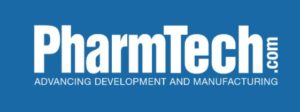Published Articles
As the pharmaceutical market continues to expand globally, regulatory affairs in pharma is making an effort to harmonize global standards and to protect the complex supply chain. Pharma companies and regulatory consultants are also making an effort to stay compliant with worldwide guidelines in an ever-changing regulatory environment.
There is a lot of effort on the part of drug companies to research and make sure they are compliant with the various worldwide manufacturing regulations. For the most part, GMP requirements are rather consistent worldwide.
The differences that exist can be managed by applying the strictest requirement to the products that would ensure its acceptance across the globe. Issues may arise when a standard applied to the technology is changed and the new requirement is stricter than its predecessor. Companies need to fully understand their product in the development stage to be able to address the ever-changing regulations.
Pharmaceutical Regulations
Regulators, government agencies, and standard-setting organizations can be the catalyst for the development of new and innovative therapies as a response to world health crises. There are a variety of ways a regulatory affairs consultant in pharma can get involved with these initiatives.
There are many trade organizations that offer workshops and conferences that address some of the unmet medical needs facing the global community. Companies should make sure they are on the mailing lists for these organizations so they can receive notice of upcoming conferences and choose the ones that seem most pertinent to their business. These conferences not only [provide] cutting-edge information, but they also offer an opportunity for people to network and discuss issues and potential solutions to them.
Manufacturers must navigate the regulatory science waters to ensure their products meet the proper requirements. In the following sections, industry experts give advice about regulatory affairs in pharma, standards development, and responding to regulators.
Pharma Regulatory
Global regulatory affairs standards and monographs, such as the United States Pharmacopeia and the European Pharmacopoeia (Ph. Eur.), can help pharmaceutical manufacturers get their products approved by regulatory bodies and into patients’ hands. According to a US Pharmacopeial Convention (USP) spokesperson:
USP’s public standards can help facilitate the application process by establishing standards that sponsors reference in applications and licenses to demonstrate the quality, purity, and strength of their drug products.
International standard-setting organizations emphasize regulatory affairs in pharma and the importance of ongoing industry collaboration. USP encourages pharma companies to participate in the development of public standards. Susanne Keitel, director of the European Directorate for the Quality of Medicines and Healthcare (EDQM), which is in charge of the Ph. Eur., would like to see medical regulatory affairs from industry become more active in the development of pharmacopeia standards, such as nominating experts to participate in developing standards.
The knowledge and experience of experts from pharma companies is crucial to ensure robust, state-of-the art, validated, and affordable test methods and monographs, and relevant standards worldwide. For example, no pharmacopeia could do without the contributions and collaboration within industry when it comes to pharmaceutical packaging regulations. This cross-functional industry collaboration is both helpful and necessary.
USP’s Global Health Monographs program addresses treatments for major health concerns, such as malaria, or unmet needs in underserved communities outside of the United States. Pharmaceutical companies can help by donating specifications and materials. Any regulatory consulting firm working with clients on USP for pending monographs is another way industry expertise can be leveraged.
“These are monographs or monograph revisions for certain substances that have been submitted or are intended to be submitted to FDA for approval but have not yet received approval. By approaching USP early in the process, USP can more readily close the gap that otherwise might exist between FDA approval and the publication of an applicable USP monograph,” says a USP spokesperson.
Pharmaceutical Regulatory Affairs
The pharmaceutical regulatory affairs behind researching and developing a regulated product for distribution is a long and expensive process. By regulatory consultants working closely with regulators and pharma companies, it can make the product approval process smoother.
The approval process can be improved when sponsors work hand in hand with regulatory agencies during the approval process, answering reviewers’ questions as they arise, and providing timely information regarding manufacturing processes and quality control strategies.
“In my opinion, sponsors can be more open with FDA during the development process,” says Mukul Agrawal, PhD, and member of the Bioequivalence Focus Group steering committee at the American Association of Pharmaceutical Scientists (AAPS).
“There are apprehensions about how FDA will perceive that and what if FDA asks for something unreasonable? To the contrary, FDA is helpful and appreciates the efforts of sponsors in doing things right and according to FDA’s expectations. While there is a need for balance in these interactions, it is better to maintain open communication with FDA. It is also possible to have a dialog with the FDA about their expectations, and if data can be provided to support justification for doing something differently, it should be discussed and agreed to with them.”
Pharmaceutical Regulatory Consulting
Not providing enough information about manufacturing and regulatory affairs in pharma can complicate FDA’s evaluation of a drug product.
Not providing information in the proper format (e.g., electronic common technical document [ECTD]) and providing insufficient or incomplete information … not responding in a timely fashion to requests for additional information or answering questions posed by regulatory agencies [are mistakes companies make].
Using a pharmaceutical regulatory consulting firm can help the understanding of what’s expected by the regulatory body.
“The most frequent mistake in my opinion is that the companies find out too late in the process that some things were not done according to FDA expectations as described in the various guidance documents and then try to use a Band-Aid approach. It is important to have input from all departments within the company from the earliest stages of development to prevent mistakes,” says Agrawal.
FDA Pharmaceutical Regulations
One of the important tasks that most regulatory agencies worldwide perform is facility inspections. Companies that operate in the United States or import products into the US are inspected by FDA. An FDA spokesperson states:
“During an FDA inspection, investigators are seeking to verify that facilities are operating in a state of sufficient control according to current good manufacturing practice (CGMP) guidelines.”
Companies that operate worldwide should be aware of pharma regulatory compliance and what international inspectors look for during an inspection.
Although there is a common approach for regulatory inspections by all agencies that are members of the Pharmaceutical Inspection Co-operation Scheme (PIC/S) in the US, European Union, and Asia, their focus and expectations may differ. For example, some agencies might look more closely at pest control, whereas others may be more concerned with adherence to local pharmacopeias. In addition, agencies such as the US FDA will investigate potential criminal conduct, while other agencies verify compliance with the regulations.
Pharmaceutical Regulatory Compliance
Facility compliance inspections may cause pharma regulations anxiety for leadership, but being prepared can make the process pain free.
The best way to prepare for an inspection, whether it is in the US, EU, or Asia, is to know your operations. Regulations for pharmaceutical companies are fairly clear when it comes to understanding your quality system, completing past investigations, and following standard operating procedures (SOPs). Personnel should be prepared and relaxed and employees should not change their behavior to accommodate the regulators.
An FDA spokesperson concurs:
To prepare for an FDA inspection, facilities should review the CGMP guidelines and assure they are in compliance with those guidelines. FDA offers several resources to help facilities better understand and adhere to CGMP guidelines, such as public outreach through presentations at national and international meetings and conferences to explain the CGMP requirements and latest policy documents.
Working with a Pharmaceutical Regulator
There are a variety of things pharma companies can do when inspections must comply with regulations, including having good controls, compliance processes, training, and systems up front.
There is less preparation effort if the company is in a good compliance state. Making sure everything is done correctly day in and day out will always help meet the expectations of your pharmaceutical regulatory. Make sure that the SOP system covers all the activities needed to undertake the type of ongoing manufacturing operations at the site.
EU Pharmaceutical Regulation
Global experts in pharmaceutical manufacturing regulations often suggest performing internal audits prior to an inspection by regulators can help based on EU pharmaceutical regulation changes.
Internal audits … may be helpful in identifying areas that may pose problems during the inspection. Practice audits can challenge logistics and allow personnel to go through an ‘inspection’ without the pressure of an official EU regulatory inspection. You want [personnel] comfortable and unflustered when the regulators are viewing them performing their jobs or asking them questions about their job functions.
During the actual EU pharmaceutical investigation, the best way to make the impact on your employees pain free is to make sure you talk to them before they enter into the inspection room or before they are to be observed by the EU inspectors. This is not to coach them on what to say but rather to calm them down before they are observed or questioned by the inspector so they can interact in a positive way with the inspector. Companies should also identify and address any potential pharmaceutical regulatory compliance risks prior to inspections.
Knowing your risks allows you to better prepare for inspection questions. You also need to be seen as addressing the risks that you have found.
cGMP Regulations for Pharmaceutical
Companies should plan the logistics of an inspection including the location for the inspection, personnel escorts and contacts, and preparing any communications or documents the inspectors might require. Pharmaceutical regulatory consulting companies like RCA conduct assessments as if an inspector may want to see:
A copy of the current organizational chart, a copy of the titles of your SOPs, a list of your corrective actions and preventive actions (CAPA)/investigations, and a list of your complaints. The rule of thumb is to go back approximately two years for the CAPA/investigations and complaints.
Addressing findings from previous inspections is also imperative.
Inspectors review previous inspection reports and expect that prior commitments have been completed. Most importantly, any documents the inspectors ask for should be provided in a timely manner. Bottom line, the sooner you get the regulators the information they want, the sooner they will be able to wrap up the inspection. If you are organized and forthcoming in your information your inspection will go much smoother.
Companies may benefit from providing a quality assurance consultant with an overview of their facilities. This can increase the success of training programs and process revisions before an inspection takes place.
Recognize that the inspector is dropping into your environment with little context. By providing them with the context they will be better able to understand what you do and ask better questions. It is recommended to use storyboards to describe processes, situations, or decisions. Storyboards can be useful in meeting pharma regulations because they help the inspector understand the situation rather than forcing the pull information from one or more documents.
While preparation may be key, there are obvious things companies should avoid to meet pharmaceutical regulatory compliance during an inspection, such as lying, being evasive, or arguing with inspectors.
“The inspector will want direct answers to direct questions and to talk to the people doing the job, not management,” says Lerner. The regulatory investigator is there to ensure GMPs are being followed, and avoiding the inevitable may make things worse. “Sometimes companies try to hide situations from investigators or provide misleading answers. A good investigator usually asks the same question in different ways and in multiple areas and will uncover misleading or untrue answers,” says Madsen.
Medical Affairs in Pharmaceutical Industry
Responding to violations observed during an inspection is equally important across the entire Medical Affairs team.
Respond quickly but thoughtfully. For a 483, point out any situations that the investigator may not have fully understood. It’s best to clarify and resolve these during the inspection, if possible, before they are put in writing.
Regulatory affairs in pharma should take FDA 483 observations seriously, but be careful not to overcommit.
When the inspector returns, they expect the commitments to be completed and could escalate actions if not completed. Systemic corrections should be put in place. Companies should make sure to address how you are going to maintain a compliant status once the change has been implemented and have a plan for any violations that cannot be immediately fixed.
Addressing root causes of observed violations is key. It is often the most critical element of the assessment a quality control consultant would provide to you about lingering NCR’s:
The agency really wants to see that you are addressing the root cause and that you are addressing this issue across the organization. As an example, if the inspector found that a particular non-conformance (NCR) was not investigated fully, it is equally important to both explain what happened in that instance (and why you made specific decisions) and what you are doing to prevent future insufficient NCR investigations.
Properly addressing violations cited by investigators on a FDA 483 form may help companies avoid receiving a warning letter from FDA. When FDA does send a warning letter, companies should take their response seriously.
The warning letter itself is an indication that the company has been out of compliance for some time and has been unsuccessful in solving their compliance issues. Probably the most conservative response to a warning letter is to outline your plans to improve your quality system and commit to bringing in an unbiased third party (consultant) to review and make sure your plans are executed appropriately and will eliminate your systemic quality problems. If you are at the warning letter stage, it means you have been unable to solve your problems and you need help. Make sure you communicate this in your response.
This advice rings true. In recent warning letters, the agency has often suggested a company obtain outside consultation in resolving GMP violations.
Government Regulations on Pharmaceutical Companies
Ensuring the safety and efficacy of medicines doesn’t stop when the drug is approved by regulators and distributed to the public. Inefficient manufacturing practices, GMP violations, negligence by ingredients or service suppliers, and other complex issues can all have an impact on the safety of a drug product. Both industry and regulators have a continued responsibility to ensure the safety of patients.
One aspect of pharma’s part of this responsibility is keeping regulators informed of any adverse events associated with a drug product. An FDA spokesperson states that pharmaceutical companies that “market prescription and nonprescription drug and biological products in the US must review all adverse event information they obtain or otherwise receive from any source, and report adverse events to the FDA’s Center for Drug Evaluation and Research as described under the regulation or section of the Food, Drug, and Cosmetic Act that is applicable to the type of product they market.”
“Adverse event reporting is a serious matter and should not be taken lightly,” says Schniepp. A well-managed and properly staffed pharmacovigilance unit is key, according to Moreton. “[The unit should have] clearly defined responsibilities and report in to the senior management (not sales and marketing),” says Moreton.
Pharmaceutical Regulatory Intelligence
Companies should report pharmaceutical regulatory intelligence behind adverse events via the regulatory affairs in pharma established by notified bodies. When in doubt, it is better to be conservative and report by the earlier of multiple deadlines. Providing complete information required by FDA pharma regulations is just as important as is maintaining accurate records. It is best to initiate the process for adverse event reporting as soon as regulatory affairs in pharma companies become aware of of the event to prevent any delays in filing.
A very common mistake made by regulatory affairs in pharma is waiting too long to report the event. Many companies are tempted to wait until they have completed the investigation into the event before reporting its occurrence. By contrast, regulatory bodies like the FDA are clear on adverse event reporting.
“These entities must ensure that the adverse event reports they submit to FDA are transmitted in an electronic format the FDA can process, review, and archive. In addition, these entities must have written procedures for the surveillance, receipt, evaluation, and reporting of postmarketing adverse event to FDA as well keep records of all known adverse event information,” states an FDA spokesperson.
Conclusion
Regulatory affairs in pharma should be used as a tool to help manufacturers develop and market their products and that regulators and their regulations should not be feared or avoided. Being mindful of regulatory requirements, especially European regulations for pharmaceutical industry, can make the regulatory approval process much smoother. Maintaining GMPs and having well-trained personnel will ease the stress of regulatory inspections.
It is clear that both industry and regulators have the same ultimate goal: provide safe and effective treatments to people who need them. Understanding and nurturing the industry-regulator relationship fosters innovation in regulatory affairs in pharma and ensures patient safety worldwide.
Article Details

Pharmaceutical Technology
Vol. 40, No. 12
Pages: 20-24
To begin the Regulatory Compliance Associates scoping process today, please enter your information in the blue form below and click the submit button at the bottom of the webpage. You may also email us at [email protected].
Connect with RCA Today
Contact us to learn more about our regulatory compliance experts and how they can help



















